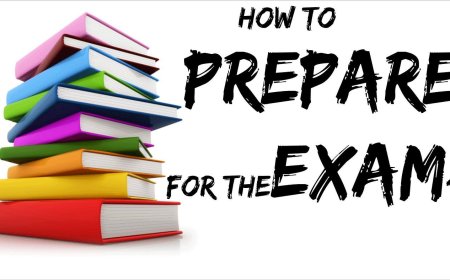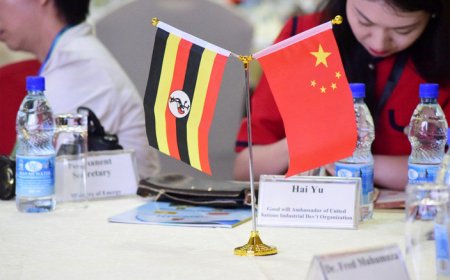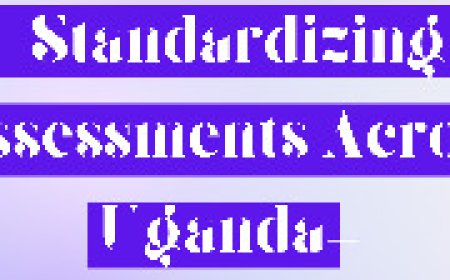Key Skills Students Will Learn Under Uganda's New Curriculum"
Uganda’s revised lower secondary curriculum aims to prepare students with essential 21st-century skills such as critical thinking, creativity, teamwork, effective communication, and digital literacy. Instead of treating these as standalone subjects, the curriculum weaves them into all areas of learning to help students become problem-solvers, innovative thinkers, and clear communicators.

The introduction to Uganda's new curriculum marks a significant shift in the country's approach to education, emphasizing the development of key skills essential for the 21st century. Under this updated framework, students will be equipped with a diverse set of competencies designed to enhance their critical thinking, communication, and digital literacy skills. This article explores the key skills that students will acquire through the new curriculum, ranging from entrepreneurship and financial literacy to creativity and global citizenship. By understanding the objectives and implementation of this curriculum reform, educators and stakeholders can better support students in acquiring the necessary skills to thrive in an increasingly complex and interconnected world.
The new curriculum in Uganda aims to provide students with a well-rounded education that goes beyond traditional academic subjects. In addition to focusing on core subjects like math and science, the curriculum also places a strong emphasis on practical skills that are relevant to the modern workforce. By incorporating subjects such as coding, design thinking, and problem-solving, students will be better prepared to meet the demands of a rapidly changing job market. This holistic approach to education not only equips students with the skills they need to succeed in their careers but also fosters a sense of creativity and innovation that will serve them well in all aspects of their lives.
Introduction to Uganda's New Curriculum
Uganda's education system is getting a makeover with the introduction of a new curriculum. This revamp aims to prepare students for the challenges of the modern world by focusing on a more holistic approach to learning.
Overview of the New Curriculum Framework
The new curriculum framework in Uganda emphasizes a shift towards competency-based education, focusing on not just what students know, but what they can do with that knowledge. It aims to equip students with a broader set of skills to navigate the complexities of the 21st century.
Implementation Timeline and Key Changes
The implementation of the new curriculum is set to roll out in phases, with key changes including a stronger focus on critical thinking, communication skills, digital literacy, and collaboration. These changes are designed to better prepare students for a rapidly evolving global landscape.
Critical Thinking and Problem Solving Skills
Critical thinking and problem-solving skills are like the secret sauce of education – they make everything better. In Uganda's new curriculum, these skills take the spotlight, helping students become savvy thinkers and creative problem solvers.
Importance of Critical Thinking in Education
Critical thinking isn't just about questioning everything (although that can be fun). It's about analyzing information, making connections, and forming well-reasoned arguments. These skills are crucial for students to thrive in an ever-changing world.
Strategies for Developing Problem-Solving Skills
Problem-solving is like a muscle – the more you exercise it, the stronger it gets. The new curriculum in Uganda focuses on helping students flex their problem-solving muscles through real-world scenarios, collaborative projects, and creative thinking exercises.
Communication and Collaboration Skills
Communication and collaboration skills are the peanut butter and jelly of the education world – they just go together. In Uganda's new curriculum, students will sharpen their ability to convey ideas effectively and work seamlessly with others.
Enhancing Verbal and Written Communication Skills
From writing essays to giving presentations, strong communication skills are essential for success in school and beyond. The new curriculum in Uganda aims to hone students' verbal and written communication abilities, empowering them to express themselves with confidence.
Promoting Effective Collaboration in Learning Environments
Collaboration isn't just about group projects – it's about working together towards a common goal, learning from each other, and celebrating shared successes. The new curriculum in Uganda fosters a culture of collaboration, preparing students for teamwork in the real world.
Digital Literacy and ICT Skills
In today's digital age, being tech-savvy is as important as knowing your ABCs. Uganda's new curriculum recognizes the significance of digital literacy and ICT skills, equipping students to navigate the digital landscape with ease.
Integration of Technology in the New Curriculum
Technology isn't just a tool – it's a way of life. The new curriculum in Uganda seamlessly integrates technology into learning experiences, providing students with hands-on opportunities to harness the power of digital tools for research, creativity, and communication.
Building Digital Literacy and ICT Competencies
From coding to cyber safety, digital literacy encompasses a wide range of skills that are essential for students to thrive in the digital realm. The new curriculum in Uganda focuses on building these competencies, ensuring students are well-equipped to navigate the digital landscape responsibly and effectively.
Entrepreneurship and Financial Literacy Skill
Fostering an Entrepreneurial Mindset in Students
Ready to unleash your inner entrepreneur? Uganda's new curriculum is here to help students cultivate a mindset that thrives on creativity, innovation, and problem-solving. Get ready to think big and bold!
Financial Literacy Education in the Curriculum
Say goodbye to financial jargon confusion! With financial literacy education integrated into the curriculum, students will learn practical money management skills that are essential for navigating the complexities of the modern world.
Creativity and Innovation Skills
Nurturing Creativity Through Project-Based Learning
Who says learning can't be fun and creative? Through project-based learning, students will have the opportunity to explore their imagination, collaborate with peers, and bring their innovative ideas to life. Get those creative juices flowing!
Promoting Innovative Thinking and Problem Solving
Got a problem? No worries! Uganda's new curriculum emphasizes innovative thinking and problem-solving skills to equip students with the tools they need to tackle challenges head-on. Get ready to embrace your inner problem solver!
Global Citizenship and Cultural Competence Skills
Promoting Cross-Cultural Understanding and Respect
Step into the global arena with confidence! By promoting cross-cultural understanding and respect, students will broaden their horizons, embrace diversity, and become true global citizens. Get ready to connect with the world!
Engaging Students in Global Issues and Sustainable Development Goals
Ready to change the world? Uganda's new curriculum engages students in global issues and sustainable development goals, empowering them to become agents of positive change. Get ready to make a difference on a global scale!In conclusion, the new curriculum in Uganda presents a promising opportunity to equip students with the skills and knowledge needed to succeed in the modern world. By focusing on critical thinking, communication, digital literacy, entrepreneurship, creativity, and global citizenship, this educational reform aims to prepare students for the challenges and opportunities of the future. As educators, policymakers, and communities rally behind the implementation of this curriculum, we can look forward to a generation of empowered and well-rounded individuals ready to make a positive impact on society and the global stage.










































